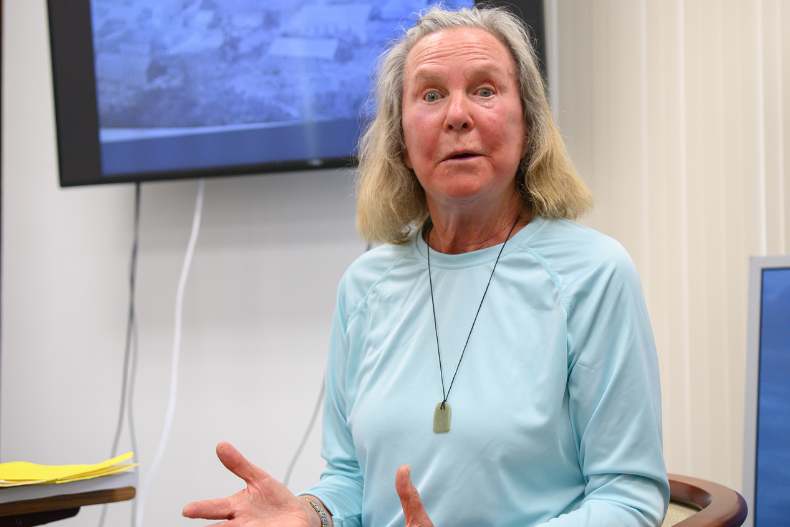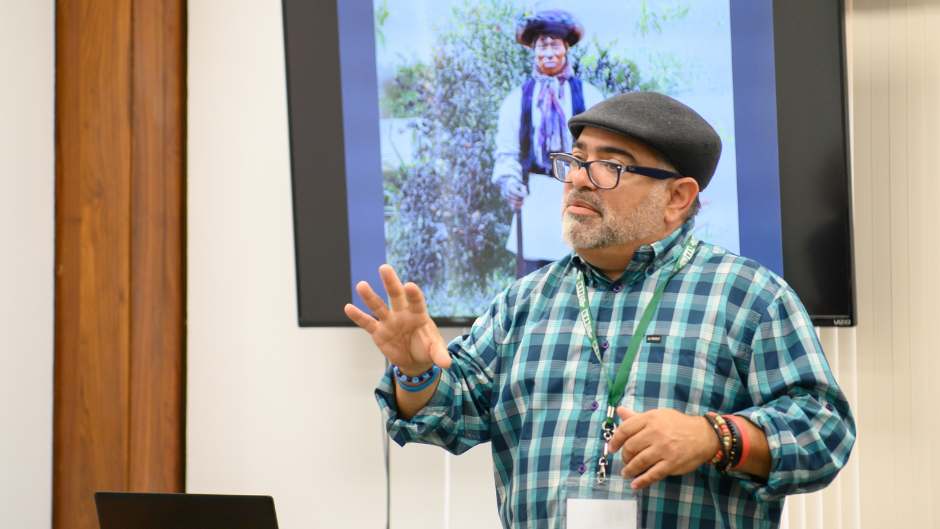While Julia Tuttle is widely regarded as the "Mother of Miami," at least one local historian believes there is another pioneer woman who deserves equal billing as co-founder of the Magic City.
South Florida historian and author Cesar Becerra is working to correct what he calls a historic oversight in Miami’s origin story — highlighting the contributions of Mary Brickell, a savvy businesswoman and landowner Becerra calls the "most overlooked trailblazer" in Miami’s history.
"There is no Miami without Mary Brickell," said Becerra, who spent more than 25 years researching Mary Brickell’s legacy, even traveling to Australia where Mary Brickell was born to access archives and family documents. "She had a vital role in shaping Miami. She is more than just a footnote to her husband and other movers and shakers of the day."
Becerra teaches a course on South Florida Communities and Characters, for the University’s Osher Lifelong Learning Institute (OLLI). He published a book, "Orange Blossom 2.0," that makes the case for Mary Brickell as the "other mother of Miami."
"My hope is to give (my students) a better appreciation for the tireless people in our history who don’t get the recognition they deserve," said Becerra, whose career includes stints at some of South Florida’s most beloved spots like Fairchild Tropical Botanic Garden, the Deering Estate, and Big Cypress National Preserve.
Mary Brickell — matriarch of the pioneer family for whom Brickell Key and the Brickell financial district are named — settled with her husband, William, at the mouth of the Miami River in 1871 after purchasing more than 2,000 acres of land.
The family opened Miami’s "first post office, first bank, and first store," Becerra said. The store, a trading post that welcomed Indigenous people, as well as Black families, became a hub of activity in the young community.
Following Mary Brickell's death in 1922, an article in the Miami Herald noted: "During a time of segregation and bigotry in Miami, she would lend money to black people and Seminoles. She was revered in both communities for her generosity, trust and kindness."
Perhaps most importantly to Miami’s future, Mary Brickell — like Julia Tuttle — sold a large portion of her land to Henry Flagler to extend his railroad to Miami, a key milestone in the growth of the young city.
"Mary was one of the largest female landowners in the state, holding thousands of acres in an era when women didn’t have the right to vote," Becerra said. "The land was hers, not her husband’s. She handled the negotiations, and she had the vision."
For his class, Becerra brought in a guest speaker with a unique perspective on Mary Brickell — her great granddaughter, Bea Brickell. An attorney who practiced international law in Washington, D.C. for many years, Bea Brickell grew up in the heart of her family’s Miami homestead.

"There’s nothing like having a member of a pioneer Florida family giving her two cents on her family’s and this city’s history," said Becerra, who is working on another Miami history book with Bea Brickell. "I think the students were pretty excited to meet her."
Edward Cutie, an OLLI member who took Becerra’s class, said he appreciated hearing directly from a member of the Brickell family.
"It’s interesting to know that the family is still around," he said. "The story of Mary Brickell is proof that there is so much great local history we need to learn and keep alive."
Bea Brickell, who is steward of her family’s documents and artifacts, said she was "pleasantly surprised" by the students’ enthusiasm for hearing her great grandmother’s long-forgotten story.
"The stories of my family have really never been told until now so to see this interest was a real pleasure," she said. "It’s been a long time coming and I’m glad that I could participate with Cesar in bringing her story to life."
Cesar Becerra’s course on South Florida Communities and Characters will be offered through OLLI in the Fall. Bea Brickell will join the class on Sept. 9. For more information, contact OLLI at osher@miami.edu or call 305-284-6554.

